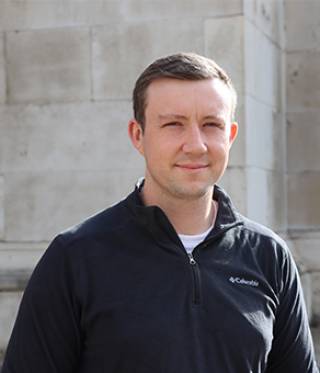Research Title
Demographic and behavioural representativeness of in-app mobile phone location histories
- More about Hamish
Academic Background
- Research Assistant: London School of Hygiene and Tropical Medicine - 2019 – 2021
- Research Experience for Undergraduates Researcher: UMass Boston, Boston, Massachusetts, USA - 2017
- Research Assistant: Syracuse University, Syracuse New York, USA - 2017
Education
- PhD Geography: University College London - 2021 – Present
- MSc Geoinformation Technology and Cartography: University of Glasgow - 2018 – 2019
- BA Geography, minors: Spanish and Applied Statistics: Syracuse University - 2014 – 2017
- Teaching
I have been involved in the following teaching:
- Data Manipulation, Health Data Science MSc: London School of Hygiene and Tropical Medicine - 2020 – 2021
- Introduction to GIS: London School of Hygiene and Tropical Medicine - 2019 – 2021
- Publications
- Changing travel patterns in China during the early stages of the COVID-19 pandemic. Nature communications. 2020
- Detecting behavioural changes in human movement to inform the spatial scale of interventions against COVID-19. PLOS Computational Biology. 2021
- Association between mobility, non-pharmaceutical interventions, and COVID-19 transmission in Ghana: a modelling study using mobile phone data. PLOS Global Public Health. 2022
- (Under Review) Population disruption: estimating changes in population distribution in the UK during the COVID-19 pandemic. Wellcome Open Research. 2022
Conferences
- Royal Society: Lessons from COVID-19 pandemic Royal Society Conference. 2022
- Royal Geographic Society: Annual International Conference. 2022
- Research Interests
The widespread collection of location data from users of mobile phone applications has improved scientists' ability to measure empirical patterns of human travel. Location data from mobile phones has been used in particular during the response to the COVID-19 pandemic for monitoring behavioural responses to non-pharmaceutical interventions and for predicting disease transmission.
While in-app location data has been widely adopted in operational contexts as a measure of empirical movement, it is collected from a non-random sample of individuals and may only record specific types of behaviour. My research will identify the strengths and limitations of in-app location data for measuring population and individual-level behaviour. The research will focus in particular on the use of in-app location data to identify behaviours relevant to the transmission of infectious disease.
- Research Grants, Prizes and Awards
- Saint Andrew’s Society of New York Scholarship for Study in the UK
- Preston E. James Award for Excellence in Geography
 Close
Close


